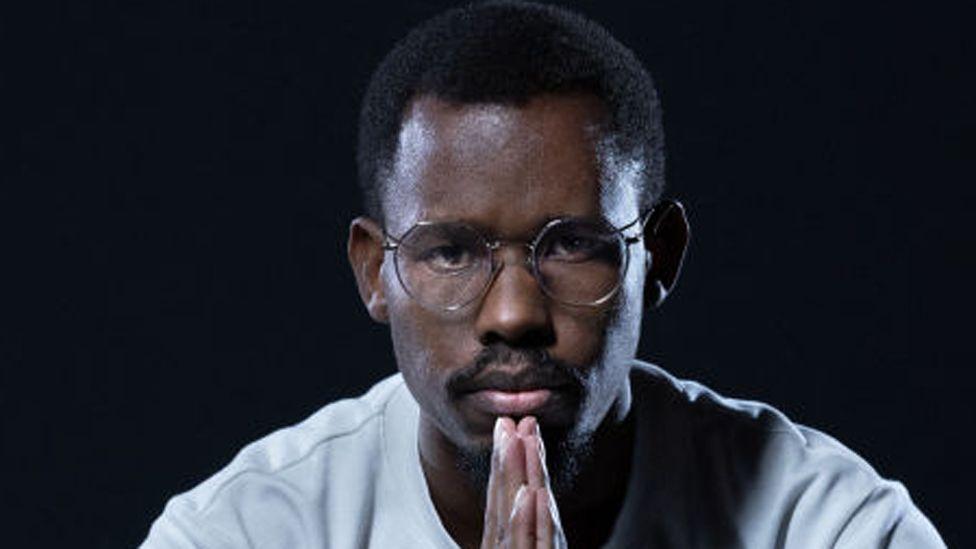Nelson Amenya, a Kenyan MBA student in France, has recently gained recognition for his courageous act of transparency concerning a controversial deal between the Kenyan government and the Adani Group, an Indian multinational corporation. This situation arises from a troubling pattern in Kenyan history, characterized by a series of corrupt contracts and questionable dealings between the government and private firms. The nation’s laws, intended to regulate and enhance transparency in such arrangements, are often overlooked, perpetuating the cycle of corruption that many activists strive to dismantle. Amenya’s profile as an anti-corruption advocate had already been on the rise when, in July, he disclosed details of a proposed 30-year lease of Jomo Kenyatta International Airport (JKIA)—the largest airport in Kenya and the East African region—worth approximately $2 billion. With aspirations to modernize and manage the airport, Amenya initially perceived the documents as just another governmental agreement. However, as he delved deeper into the proposal, he realized its potentially harmful implications for the Kenyan economy.
Upon reviewing the leaked documents, Amenya formulated a grave perspective; the deal was designed to significantly benefit the Indian conglomerate while burdening Kenya with financial liabilities if the Adani Group failed to recoup its investment. Alarmed by the imbalance of benefits, he believed that the arrangement would strip the Kenyan public of essential financial returns while placing an undue financial obligation on the government. His concerns grew as he noted that numerous legal processes, meant to safeguard taxpayer interests, were seemingly being disregarded. The Adani Group, a powerhouse in sectors such as infrastructure, energy, and mining, is closely linked to influential political figures in India, which compounded Amenya’s fears about the integrity of the deal. As he detailed his findings on social media, he felt a moral imperative to take action despite the inherent risks associated with exposing such high-level corruption.
Amenya faced serious apprehensions regarding his safety and the potential repercussions of his disclosures, particularly in a nation where numerous anti-corruption figures have met violent ends. His fears were further exacerbated by internal struggles; he grappled with the enormity of risking his career, lifestyle, and potentially his life. Yet, his resolve solidified when he contemplated the alternative silence. Reflecting on his responsibilities to his homeland, Amenya ultimately opted to share the incriminating details publicly on X (formerly Twitter) in July, igniting a wave of criticism against the proposed deal. His actions prompted airport workers at JKIA to mobilize in protest, demanding the cessation of the unfavorable agreement. The uproar surrounding the deal lent weight to Amenya’s conviction that urgent accountability and reparative measures were essential in confronting corruption in Kenya.
Despite the immediate backlash from the public and the government, various officials maintained that their dealings with the Adani Group were above board. As Amenya raised alarm over a lack of public consultation concerning the deal, the Kenya Airports Authority, traditionally tasked with management of the airport, began hurriedly organizing stakeholder meetings—after the dimensions of the deal had already been exposed publicly. Amenya’s assertions that legal oversight and due processes had been bypassed garnered support from activists who echoed his concerns over the potential long-term effects on the Kenyan economy. Although the Adani Group rejected Amenya’s claims as unfounded and insisted that discussions had not resulted in a binding contract, the controversy reached a tipping point when U.S. authorities initiated an indictment against Gautam Adani for alleged bribery in other ventures. This indictment ultimately fueled a swift shift in the Kenyan government’s stance.
Under mounting pressure, President William Ruto announced the cancellation of both the airport lease and a subsequent power deal with the Adani Group, a proclamation that invigorated supporters of anti-corruption efforts within the nation. Ruto’s declaration elicited turbulent reactions; while he credited investigative agencies and international partners for unveiling credible evidence of corruption, the applause from Kenyans showcased Amenya’s unexpected influence on government decision-making. The momentous occasion filled Amenya with a profound sense of accomplishment, as his fear and persistence manifested a significant victory against corruption, despite the ongoing challenges he faced. The cancellation of the agreements was not solely a personal triumph for Amenya but a pivotal moment signaling the population’s rejection of corrupt deals that threaten the integrity of national resources.
Notably, the aftermath of Amenya’s revelations placed him in a precarious position, facing defamation lawsuits initiated by Adani representatives and Kenyan political figures, leading him to reflect on his choices and the personal cost of his disclosures. As he received offers from government insiders suggesting he abandon his fight in exchange for financial compensation, he reaffirmed his commitment to advocate for his nation, deeming any retreat as a betrayal of Kenyan citizens. The excitement surrounding the deal’s cancellation was quickly overshadowed by enduring threats and the fragility of his future in Kenya. President Ruto’s remarks questioning the motives of those opposing developmental projects inadvertently undermined the complex and multifaceted battle against corruption. Despite these challenges, Amenya’s resolve remains strong; he continues to fundraise for legal fees while navigating an uncertain path marked by both external pressures and an unyielding commitment to his beliefs.
In summary, Nelson Amenya’s actions have become emblematic of the struggle for transparency and accountability within the Kenyan political landscape. His efforts have rallied citizens around the need for vigilance against corruption, illustrating the potential impact of individual bravery in confronting systemic failures. Acknowledged widely as a voice for integrity, Amenya’s journey encapsulates the ambition for a transparent dialogue regarding governmental dealings while providing vital insights into the often perilous nature of activism. Amenya’s unwavering belief that ordinary individuals can effect meaningful change against the backdrop of deep-rooted corruption continues to inspire hope for a reformed and ethically governed Kenya. His story serves as a powerful reminder that the call for integrity and transparency must be met with collective diligence and the audacity to act, instilling confidence in citizens looking to hold their leaders accountable for their actions.

